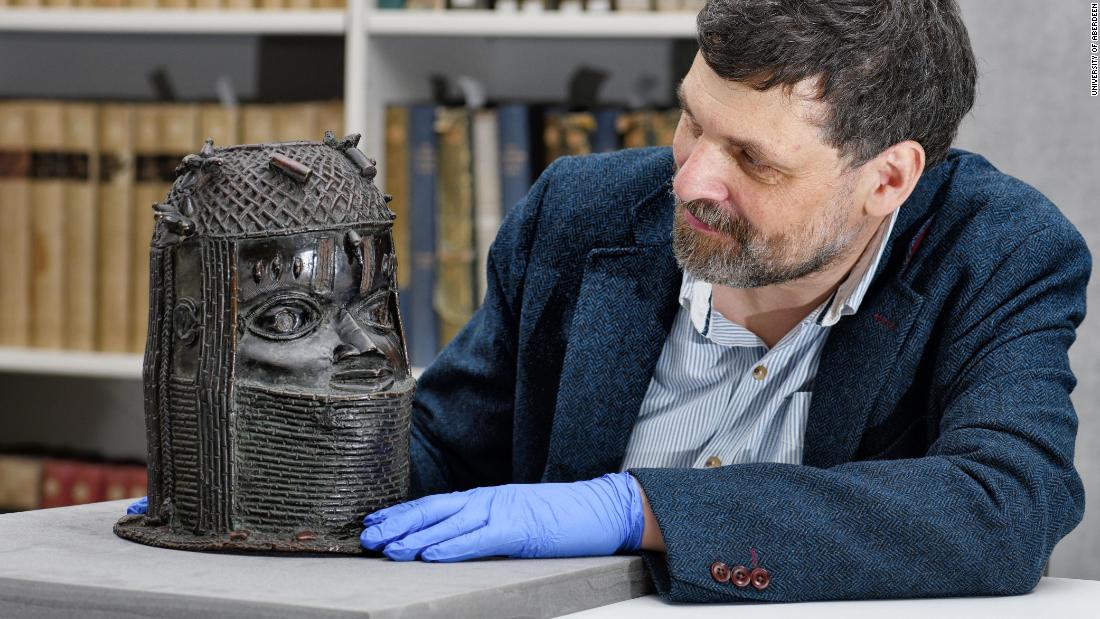
The university said the sculpture of an Oba, or ruler, of the Kingdom of Benin, left Nigeria in an “extremely immoral” way, prompting him to contact the authorities in 2019 to negotiate his return.
The pressure increased to return to their places of origin Benin’s bronzes – in fact relief sculptures made of copper alloy – and other artifacts taken by the colonial powers.
Neil Curtis, head of museums and special collections in Aberdeen, said the bronze, bought in 1957, was “blatantly robbed”.
“It has become clear that we need to do something,” Curtis said.
Professor Abba Isa Tijani, director general of the National Commission for Museums and Monuments of Nigeria, said that the importance of displaying bronze in Nigeria for the first time in more than 120 years is inexpressible.
“It’s part of our identity, part of our heritage … that has been taken away from us for many years,” Tijani said.
British soldiers confiscated thousands of castings and metal sculptures from the Kingdom of Benin, then separated from British-led Nigeria in 1897.
The British Museum, which has hundreds of sculptures, has set up a Beninese dialogue group with several other museums to discuss their display in Benin, some of which are on loan. He said talks were ongoing.
Germany is in talks to send back 440 Benin bronzes since the autumn, according to newspaper reports, while Jesus College at Cambridge University said it had completed approvals in December to return another bronze. Tijani said American museums have also agreed to return two more bronzes.
The governor of Edo state, whose capital is Benin, plans to build a center for storing and studying returned artifacts by the end of 2021 and a permanent museum by 2025.
Edo State artist and native Victor Ehikhamenor said he hoped the decision would lead others to follow suit.
“Because some of these things are missing from our environment, people are not able to contextualize where we come from,” Ehikhamenor said.